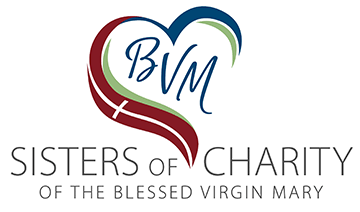Clarke Student Video Raises Awareness of Marshallese in Dubuque
Six Clarke University students created a video about Marshallese people living in Dubuque, Iowa, to help address challenges of racism and oppression.
“The Forgotten People” video is a result of an inaugural Activism and Values Informed Education Clarke Compass scholarship. BVM Regina M. Qualls served as one of the mentors on the project.
“This experience has changed me,” says Mariah Pellino, a Clarke senior who worked on the project. “It raised my understanding of how important it is to stand up for and advocate for a small minority within your own community.”
The nine-minute video traces the history of the Marshall Islands, where fallout from nuclear testing by the United States fell like snow. It left generations with health problems and many places uninhabitable. One-third of the population was forced to relocate; some settled in Iowa, including Dubuque.
But Marshallese face barriers including employment, education, and language.
“They’re not asking for much,” says Jenifer Westphal, a Clarke alumna and trustee who sponsored the scholarship. “They’re asking for the ability to get a job, for the ability to be able to take care of themselves. That’s a basic human need.
“You’ve just done an amazing thing,” Westphal told the students, “just by putting that video together and increasing the awareness of what these people need.”
After much research, students decided to focus on the Marshallese and healthcare. But interviews with Marshallese showed that language was a huge concern.
This was perhaps one of the great learnings for the students: you can assume what someone needs or you can ask them what is needed. The two are not necessarily the same.”—Regina M. Qualls, BVM
“This was perhaps one of the great learnings for the students: you can assume what someone needs or you can ask them what is needed. The two are not necessarily the same,” says Regina, who mentored Clarke senior Hayden DeGross during the project. “The translation issue was a surprise to the students and it was wonderful to watch them come to the realization that they needed to change their focus and then to see how they went about it. And, of course, they were so proud when we had the showing of the final version.”
Marshallese want their culture and language preserved, students found.
“I’m afraid we will lose our culture, especially our language,” says Irene Maun in the video.
One way to help is for the Marshallese language to be on translation apps, so they can communicate through digital translation tools with medical and other professionals when translators are not available. Sign a petition at www.clarke.edu/aviemarshallese
Students said the project was an eye-opening, creative opportunity to work as a team remotely.
Paula Schmidt, interim vice president for academic affairs at Clarke, says one of the project’s lessons is “surround yourself with people who want to make a difference, who really care.”
